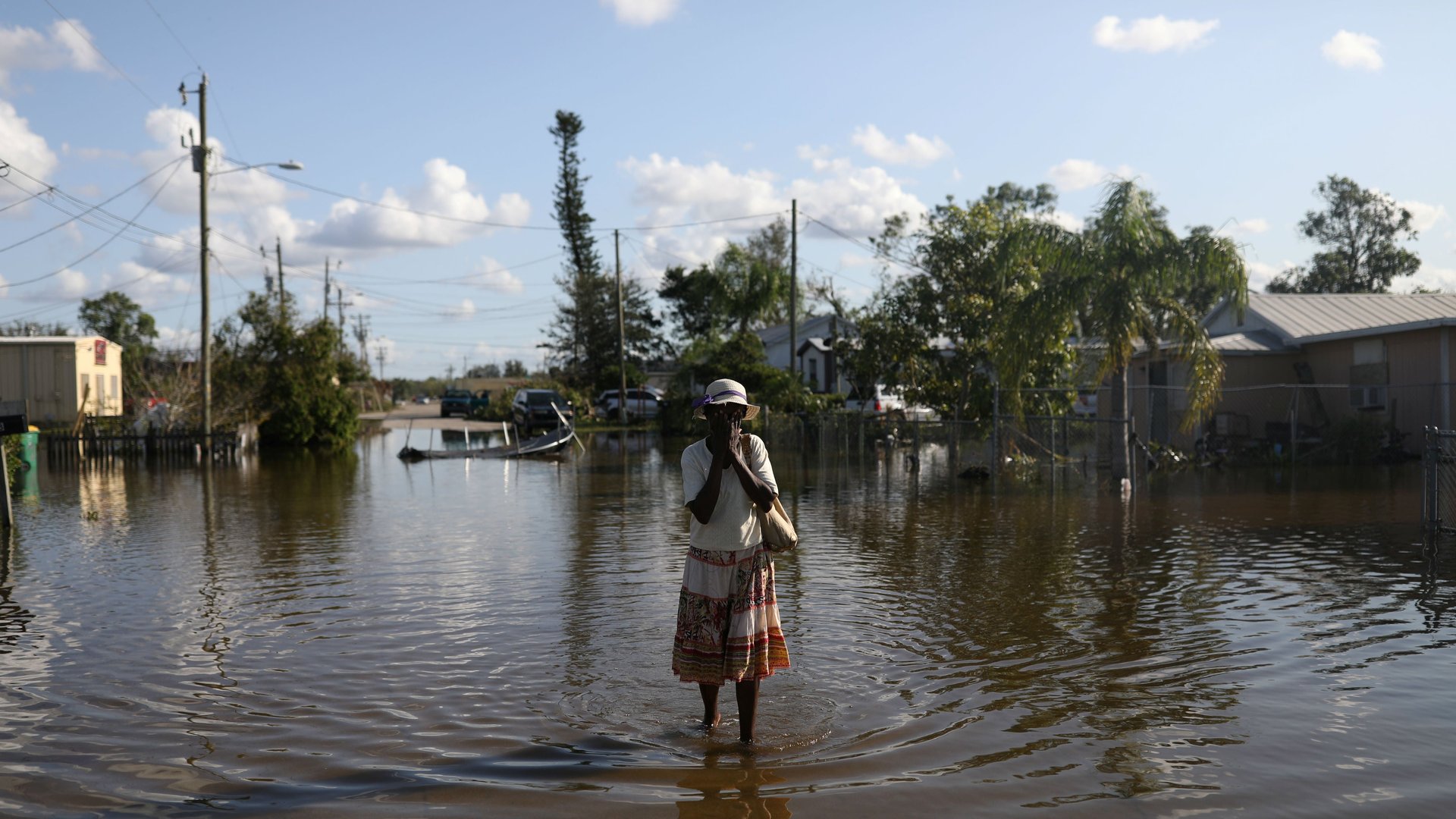Hurricane season has completely overwhelmed wastewater treatment centers in Florida and Texas
In addition to the billions of dollars of damage from wind and the rain, Hurricanes Harvey and Irma have trashed the wastewater systems in the cities they tore through. Untreated water has combined with all the flooding from storm surges to fill the cities and surrounding areas, posing health risks for people trying to return to normalcy.


In addition to the billions of dollars of damage from wind and the rain, Hurricanes Harvey and Irma have trashed the wastewater systems in the cities they tore through. Untreated water has combined with all the flooding from storm surges to fill the cities and surrounding areas, posing health risks for people trying to return to normalcy.
In Florida, city pipelines are able to withstand about twice the amount of water than they’re built to filter. But the past two hurricanes have completely overwhelmed these systems, and pipes have overflowed with millions of gallons of untreated water into streets, homes, and along the coasts of the state. As Bloomberg reports, 500,000 gallons of wastewater flooded St. Petersburg and Orlando, with another 6 million gallons flowing out to the coast of Key Biscayne after Hurricane Irma.
Texas water treatment centers haven’t fared too well either; the US Environmental Protection Agency (EPA) says that at least 40 of the 1,219 wastewater treatment centers in the area surrounding Houston are temporarily out of commission in the aftermath of Hurricane Harvey.
Without proper treatment, wastewater can carry all sorts of bacteria that can lead to illnesses. According to an independent report conducted by the New York Times (paywall), Houston is experiencing an outbreak of E. Coli, a type of bacteria typically found in human waste that can cause gastrointestinal illnesses if accidentally consumed. Scientists from Rice University, Baylor College of Medicine, and the Houston Health Department in Texas worked with the Times to find contamination in flooded homes as high as 135 times the level considered safe.
Similar levels of bacteria are probably floating around parts of Florida as well. In addition to E. Coli, flood waters also likely contain other infectious bacteria that cause stomach flus or, like the microbe that causes tetanus, infect open wounds.
The Times also found evidence of heavy metals and chemical pollutants like pesticides floating in these waters, likely contaminants churned up from from the ground and sediment. Although boiling water or treating it with iodine tablets will kill bacteria, it does nothing for harmful metals or chemicals. Lead, for example, can cause neurological, reproductive, and urinary problems if swallowed or inhaled, even at low levels over time. And pesticides used on lawns contain chemicals powerful enough to kill insects and small mammals. At low levels, they may not hurt humans, but experts disagree (paywall) about how much exposure is detrimental for health.
According to Bloomberg, the EPA is working to send in extra hands to Florida to help get wastewater treatment plants back up and running to clear some of this water and prevent more from spreading. Riggs Eckelberry, the president of OriginClear, a California-based water purification tech company, tells Quartz it’s working with local affiliates to send industrial water filter machines capable of cleaning water from oil spills to the affected areas.
In the meantime, it’s best to stay out of the water in the streets, if possible. “I would change my clothes immediately after leaving the house, and put them in the wash with nothing else,” Winifred Hamilton, director of the Environmental Health Service at Baylor College of Medicine, told the Times. Anyone in the area who develops skin infections or gastrointestinal distress should seek medical attention.